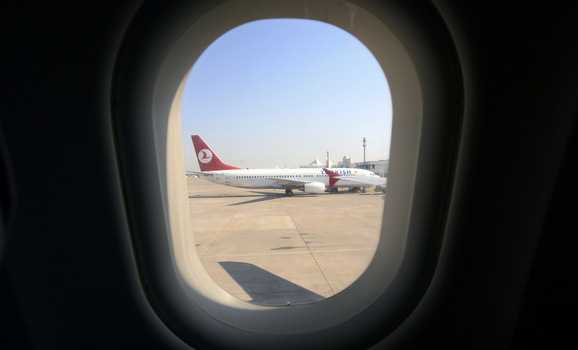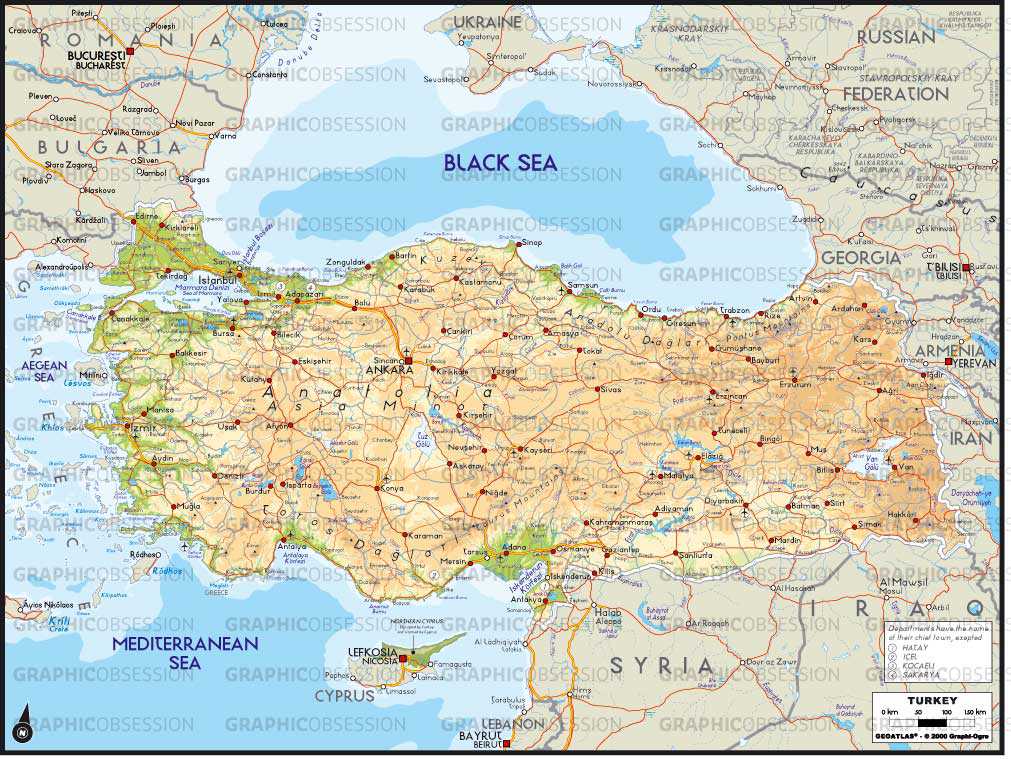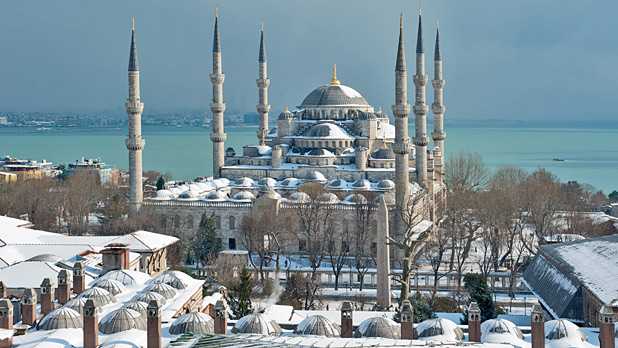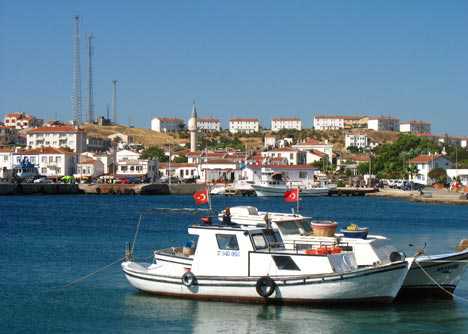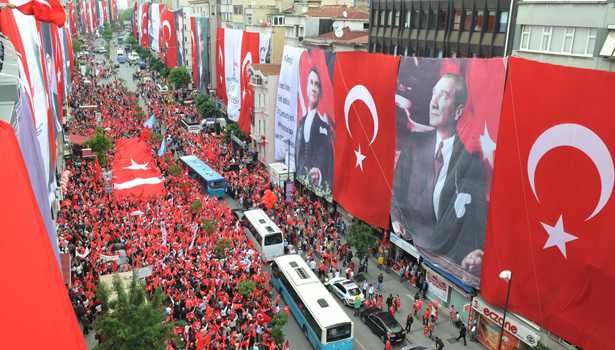From: [email protected] On Behalf Of [email protected]
Günay Evinch: For me, it seemed natural and dutiful that as a second-generation Turkish American I should be helpful to my community Friday, 15 August 2008
Ikinci nesil Amerikali Türklerin öncülerinden olan Günay Evinch kendini ve Türk-Amerikan Dernekleri Asamblesi’ndeki gelismeleri anlatti.Uluslararasi Hukuk uzmani Avukat Günay Evinch Türk toplumu için bugüne dek yapmis oldugu çalismalarin tecrübesiyle daha iyi islere imza atacaginin isaretlerini veriyor.
Chicago’da dogan, San Francisco’da büyüyen ve ATAA’nin merkezinin bulundugu Washington DC’de yasayan ikinci jenerasyon bir Türk-Amerikali olan Günay Evinch, ATAA Baskan Yardimcisi görevinde bulunduktan sonra baskanlik görevine getirildi.
Turkishny’in Günay Evinch’le yaptigi ingilizce röportaji asagida bulabilirsiniz:
TurkishNY: You are the President-Elect of the Assembly of Turkish American Associations (ATAA) and will become President as early as this fall. Tell us about yourself.
Evinch: I am a second-generation Turkish American, was born in Chicago in 1963, grew up in San Francisco, and now reside and work in Washington DC where ATAA is headquartered. I have a Juris Doctor with an emphasis in international law, and Bachelors Degrees in Economics and Public Service. I am also a U.S. Fulbright Scholar in the Armenian matter and anti-terror. In 1993, I started my own law practice, Saltzman & Evinch, www.Turklaw.Net , with a Sephardic Jewish friend from law school.
I married a Turkish woman from Diyarbakir, Senem, who I met in Virginia. We have a wonder full three-year-old daughter, Lara. My wife is a designer of 11 years, but recently partnered to represent several high-end commercial furniture companies in the eastern United States region. My brother is an independent marketing specialist for companies such as Nestle, my sister selects GAP’s clothes collection from Turkey and Asia, and my brother-in-law is a project manager for a major American construction company.
TurkishNY: What is your ‘memleket’?
Evinch: The first time someone asked me this question, I responded, “Türkiye.” I soon realized it meant, “what part of Turkey are you from”, which underscored for me how equally important one’s hometown was to one’s homeland.
My family’s “memleket” is Manisa, a generally patriotic and conservative province of western Turkey. When the Greeks invaded Turkey in 1919 they ravaged Manisa, as they did the entire western Turkish region. When the Greeks fled Ataturk’s forces three years later, they burned Manisa to the ground, and in a grotesque show of hatred, drove stakes through young girls and women and erected their corpses along the roads. These pictures are vivid reminders for the Turks of the Aegean.
My parents grew up in Manisa as children of refugees from Ottoman Macedonia. My great-grand fathers had partnered with Macedonian Jews in trading leather between Kumanova and Vienna, and with Macedonian Christians in owning and operating Turkish coffee houses in Skopje. When European nationalism and WWI brought an end to Ottoman multiculturalism, hundreds of thousands of Ottoman Jews and Muslims fled ethnic cleansing and genocide in the Balkans, as they did in the Caucasus and Middle East. The Turkish Republic opened its arms to these refugees, and my family is forever grateful. We became loyal members of the Turkish citizenry. “Ne mutlu Türküm diyene.” We have a warm affinity for Macedonia, where now our distant relatives who still speak a form of Turkish, live peacefully.
TurkishNY: Your parents were second generation Turkish Republicans, and you are a second generation Turkish American. Tell us about the transition.
Evinch: My father remembers from his childhood that his family had a chest full of Austrian money. He made paper boats from the cash, as the money was worth nothing. Having lost everything, my grandfathers started from zero in Manisa, first farming, then selling produce and fish, and finally producing leather once again. Eventually, the leather business grew. Many leather goods say “Made in Italy”, but much of the leather is from Turkey.
Among ten uncles and aunts, my father was the only one who went to college; he won scholarships to Yildiz University and then the University of Michigan. My mother went to the Kiz Meslek Lisesi where she learned to be a seamstress. My parents immigrated to the United States in the 1950s. My father became an engineer and my mother a seamstress in a factory in Chicago. Eventually, my father obtained a good position with Bechtel, and we moved to the corporate headquarters in San Francisco.
TurkishNY: How was it growing up as a second generation Turkish American?
Evinch: In the 1970s, I grew up with Italian American sin the San Francisco Bay area. As much I learned from them, they learned from my Turkish heritage. For example, all the mothers in my neighborhood had their children and their children’s’ friends take off shoes before entering the house. Mothers knew where their kids were by the row of shoes in front of the house.
While my parents were trying to integrate with America, they were teaching me my Turkish heritage. Speaking Turkish at home was the law. Also, I had Turkish language lessons after school every day. On weekends, while my friends were at Church Sunday School, I was at “Saturday School”, learning the history and principles of the Muslim religion from three Tatar women Imams in an activity room of a synagogue, as we did not have a Turk Evi or mosque.
In 1986, on my first law case, I changed the spelling of our last name from its original “Övünç” to “Evinch”, to achieve a phonetic spelling, rather than a literal spelling, because how my last name sounded was more important to me than how it was spelled.
TurkishNY: How did you become involved in Turkish American leadership at the national level?
Evinch: I was active in Turkish American activism at a very young age, as my parents were the proud children of the Turkish Republic and eager to teach Americans about Turkey and Turkish culture.
Turkish Americans are at least two generations behind their Armenian and Greek counterparts in civic engagement and politics. For me, it seemed natural and dutiful that as a second-generation Turkish American I should be helpful to my community.
Thanks to the constant encouragement of my parents and the role model that Ataturk played in our family, I started at a young age to take in interest in community service. As small as it my sound, I was President of my junior high school, Men’s Sports Commissioner in high school, and Captain of the California U-14 and U-16 Soccer Teams. Eventually, I became Vice-President of my university and President of law school. My university had only one Turk – me – but I still started the Turkish Students Union there with my Italian American friend – Vice President Benvenuto.
After I came out to Washington DC in 1988, I volunteered for the ATAA, first as Sports Writer, and then as Legal Counsel. I was eventually elected Secretary General, and Capital Region Vice President of ATAA. I received the ATAA Meritorious Service Award.
Public service is a passion of mine, second to soccer! Just kidding, but I must admit that one of my favorite hobbies is keeping Turkish National Soccer Team statistics. I have a large video library of Turkish National soccer games.
TurkishNY: Congratulations on your election as President-Elect. Can you tell us about the controversy that surrounded your candidacy?
Evinch: It was the first time in ATAA history that two qualified candidates ran for the office of President-Elect. In the beginning, September 2006, the Board of Directors’ Nominations Committee told me that though I qualified to be a candidate, the Committee had promised the position to my opponent — that this practice of promising the high position of President-Elect, therefore President, to a pre-selected person and offering ATAA members only one candidate as their leader was an ATAA tradition. I had never heard of such an absurd tradition. I had always thought that the Nomination Committee did not have a sufficient pool of nominees from which to select candidates for the position of President-Elect.
Nevertheless, I responded that such a tradition was unethical, illegal under the bylaws, and undemocratic. I responded that I qualified under the bylaws and that I should at least be permitted to be a candidate. I also offered that Turkish Americans should be permitted to become members of the ATAA as late in the election cycle as possible so that more people can vote and in order to raise money for ATAA. I also offered that who ever loses shall assist the winner, as it is the mission, not the position, that matters. The Nomination Committee disagreed 3-2.
I expressed my disagreement to the Board of Directors and excused my self from all Board meetings that concerned me because I did not believe it would be ethical to use my Board Member voting power to my advantage. As a result, the Board of Directors overruled its Nomination Committee, and overwhelmingly decided that:(1) the “tradition” that three of the five Nomination Committee members defended was unethical, illegal, and undemocratic; and (2) I qualified to be a candidate under the two election criteria of the bylaws, which are that I had demonstrated my potential as an ATAA volunteer since 1988, and that my geographical location in Washington, DC was suitable.
So, I was placed on the election ballot in the last minute. As my opponent had been given a mailing list that she used to campaign to each member of the ATAA, I was provided the same mailing list, but with very little time remaining in the campaign cycle. With such little time, I was not able to campaign, but managed to win the October 2006 election for the office of President-Elect 91-83.
TurkishNY: But your victory was short-lived when the November 2006Delegates Meeting voided your election aweek later?
Evinch: For those who do not know, Delegates are representatives of ATAA’ s component organizations. Each component organization that is in good standing gets two delegate votes, plus one additional delegate vote for each additional 100 members. Delegates vote for bylaws and policy changes, but not on officer nominations and elections, as those powers are specifically granted to the Board of Directors and individual members under the bylaws.
Nevertheless, the November 2006 Delegates Meeting was quite a democracy by anarchy, or should I say, anarchy by democracy? First, delegates were mislead to void the popular vote that had elected me, arguing that the Board of Directors did not have the authority to correct the illegal decision of its Nominations Committee. Amazingly, the Delegates unanimously voted that I indeed did qualify to run for the office of President-Elect, ironically confirming the Board of Directors decision. But, rather than permit the membership to vote, the Delegates decided to vote in place of the membership – a severe violation of the bylaws. Thus, an election I had won 91-83 in the popular vote, I lost 78-30 in the illegal and elitist Delegates vote. Something smelled “fishy”, as the American saying goes.
TurkishNY: Well, your Delegates defeat was also short-lived?
Evinch: Before I get to that, I would like to express that the engineers of the Delegates meeting inflicted tremendous embarrassment and emotional hardship upon me. They maliciously, recklessly and deliberately took away from me an election that I had earned with hard work and honesty.
I shook hands with the supposed victor of the November 2006 Delegates meeting. But, deep inside, I was crushed and confused. I left the Delegates meeting knowing that a great wrong had been done. I thought that members should have been given a genuine choice of leadership and permitted to vote directly for their leaders. I also thought that I should have been given a fair chance, having volunteered so long and so hard for ATAA and the Turkish American community.
Before I departed the Delegates Meeting, I asked some of the more passionate supporters of my opponent, who were now drunk with victory, “Ok, now that I am gone, what does ATAA gain by placing me on the sideline?” One of them seemed to pity my naivety, “Günay, Günay – Can’t you see, the President is in Michigan, and now the President-Elect is in Texas. So – the ATAA is left to us.” I didn’t know what he was talking about. I separated my self from ATAA for the next two months, December of 2006 and January of 2007.
Meanwhile, ATAA hired a law firm, Miles & Stockbridge, who are experts on non-profit organizations. They determined that the November 2006 Delegates meeting was a fraud because:(1) Delegates have no authority over election matters;(2) Delegates have no authority to override the votes of the membership;(3) many of the Delegates and the component organizations which such Delegates claimed to represent were not certified; and, (4) the certification process was deliberately circumvented. Indeed, as it turned out, at least one of the component organizations by its own internal judicial proceeding determined that its chief delegate had committed election fraud and claimed false delegate votes to use in favor of my opponent.
Importantly, the Miles & Stockbridge law firm also determined that when the Nominations Committee initially voted 3-2 not to nominate me despite my qualifications, it had acted arbitrarily and for personal reasons.
TurkishNY: If the November 2006 Delegates elections were illegal, were the October 2006 elections therefore held valid?
Evinch: Miles & Stockbridge also determined that the October 2006 elections were illegal because insufficient time had been provided to the ATAA Members to consider its voting options. Miles & Stockbridge advised ATAA to re-hold proper elections in June 2007. Again, my opponent and I were nominated for the position of President-Elect, and again we ran against each other. This time, I campaigned with plenty of time, published a campaign website www.VoteEvinch.org , and wrote letters to each voting member of ATAA. This time, the ATAA Members voted in record numbers and elected me 183-60. I had doubled my votes, while my opponent had lost 25% of her support.
TurkishNY: So, there were a total of three elections: the October 2006 and November 2006 elections which were illegal; and the June 2007 elections which were advised by Miles & Stockbridge, and this time the losers sued ATAA?
Evinch: No, my opponent did not sue ATAA; six of her most ardent supporters sued ATAA. She is a simply a pawn in the peculiar crusade of the plaintiffs, as admitted to me by one of her supporters in the November 2006 Delegates Meeting, when he stated: “Can’t you see, the President is in Michigan, and now the President-Elect is in Texas. So – the ATAA is left to us.” Well, the ATAA membership can see much better now — much better.
The official name of the case, which was filed in the courts of Washington DC is, Açikalin v. ATAA. The plaintiffs are Tamer Açikalin, Turan Tombul, Mustafa Ercilasun, Mustafa Hatipoglu, Suzan Demircan, and Ece Akaydin. They sued to void the general elections of June 2007 and to install directors of their own choosing. They also sued to ask the court to validate what they call the “Interim Board of Directors (IBOD)” which they had gerry built in an make-shift meeting in February 2007. The “IBOD” is as imaginary, as its activities on behalf of the ATAA since are non-existent. The current Board is the real board of ATAA, and the current Board is who has taken ownership of the ATAA and the Turkish American cause.
While the plaintiffs have dragged ATAA through the courts, ATAA has defended the Turkish American community and U.S.-Turkish relations in very difficult times, against the Armenian Resolution, PKK propaganda, and Greek Cypriot violations against Turkish Cypriots in Washington, DC. The case of Açikalin v. ATAA continues to this date.
TurkishNY: The Armenian American press and some of the plaintiffs’ supporters have characterized Açikalin v. ATAA as a case by ATAA officers against each other. Is this true?
Evinch: No, it is a big fat lie. Açikalin v. ATAA is lawsuit by six persons acting in their individual capacities against the ATAA organization, for their personal claims.
The alarming part is that five of the plaintiffs also sit on the Board of Trustees of the ATAA, and have used their roles as Trustees as covers for their personal claims against ATAA. They have also used their Trustee powers to their personal advantage in their lawsuit by placing ATAA under financial duress. They have also deliberately prevented the ATAA Board of Trustees from functioning, by constituting a majority on of the Trustees and failing to carryout fundamental duties of the ATAA Board of Trustees, such as: (1) maintain and grow the Endowment Fund, which has fallen from $1 million to $850,000; (2) endorse and act upon the 2007 and 2008 budgets; and, (3) release earned interest income from the Endowment Fund to the ATAA Operations Account to fund the ATAA’s overhead costs. Each day the plaintiffs prevent the Board of Trustees from releasing operating costs to the ATAA, the choose to sink those hard-earned funds into the stock market loss.
On top of that, Açikalin v. ATAA, has cost the ATAA approximately $100,000, in legal defense costs. This is in addition to the $20,000 cost of Miles & Stockbridge’s services to run the June 2007 elections properly.
It is as if some one sues you and puts a hold on your checking account and paychecks; it is cowardice and evil. From the perspective of the Turkish American cause, it is treasonous. For this reason, the Armenian Press published and article titled, “The Perfect Time”, which stated that it was a perfect time to pass the Armenian resolution when the plaintiffs were suing ATAA. Well, as it turned out, both the Armenian lobby and the plaintiffs were proven wrong. But will we win again? The Armenian resolution promises to come back with even greater force after the Presidential elections in November.
For this reason, the ATAA has counter-sued the plaintiffs for the severe financial and operational damage they have inflicted upon the ATAA by abusing their Trustee powers to the advantage of their personal lawsuits against the ATAA.
TurkishNY: How has ATAA managed to keep the doors open and accomplish so much?
Evinch: What I call the “silent, mainstream, majority” has taken ownership of ATAA. First and foremost, ATAA members have contributed over $50,000 to the ATAA since January 2007. Secondly, ATAA has received grants of over $120,000 for non-operational purposes.
Importantly, members of the Board of Directors, office staff and volunteer have dedicated long, hard hours to the Turkish American cause at ATAA. I thank and commend my team of noble fighters.
Fourthly, political pressure and legal consequences have forced the plaintiffs to take off their plaintiff hats and put on their Trustee hats just for one day, and release funds to pay for ATAA’s rent, which had not been paid since January 2007.
The ATAA membership and Board of Directors will continue to demand that the plaintiffs act like Trustees first, and plaintiffs secondly, at least through the completion of their terms this November. I do not expect that the plaintiffs will want to run for ATAA office again and become Trustees of the organization they are suing. A Trustee is a person in whom a Member places his/her trust for the benefit, not the demise, of the organization.
TurkishNY: What is the big picture here?
Evinch: I have come to the conclusion that the vociferous few are attempting to hijack ATAA from the silent mainstream majority of Turkish Americans. Açikalin v. a ATAA is crude resistance to a necessary evolution which includes: (1) older generations conveying leadership to younger generations, and (2) enabling second and third-generation Turkish Americans to employ their language skills and American institutional knowledge and experience to the advantage of the Turkish American community. The Greeks and Armenians went through these two generations ago, we are going through it today.
But, the Turkish American community cannot afford to be sidetracked from within. Though the ATAA has achieved some amazing progress since the beginning of 2007, the case of Açikalin v. ATAA has forced ATAA to fight with one hand tied behind its back. I firmly believe we will break these chains and continue our mission with even more determination.
TurkishNY: Thank you for taking the time to speak to TurkishNY. We look forward to Part 2 (Defending ATAA in the Açikalin Lawsuit), and Part 3 (ATAA’s Vision and Mission in 2009-10).
Evinch: Thank you.
TurkishNY.com
meals.

